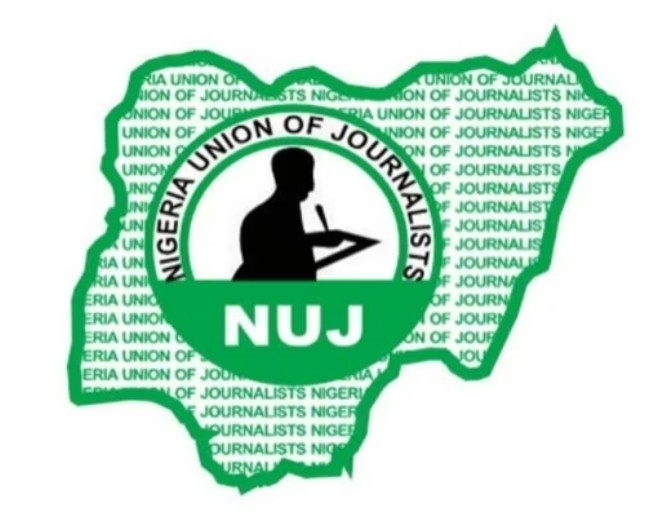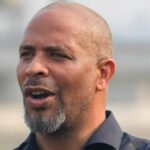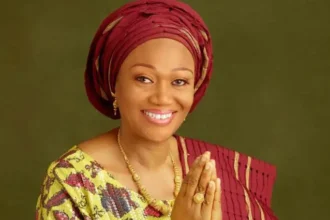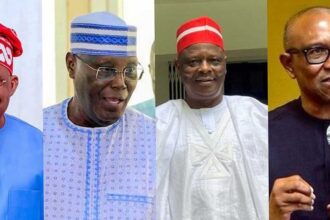Ernest Osogbue
Over the years, Nigerians have complained about the political leadership in our country. They shout at whoever is the president, at governors, some times at legislators and ministers. They complain about how persons in these positions only care for their own needs and abandon ordinary Nigerians to their fate. One thing Nigerians fail to realize is that no leader can singlehandedly do the job of making Nigeria greater by himself. He must appoint people in different areas. The citizens also have a role to play. Such persons the leader may appoint like civil servants, political aides, and advisers have an important role to play in the success of the administration. Most times, it is the output of these individuals rather than that of the political leader that the people notice and experience.
It follows, therefore, that the performance of the president, for instance, is actually the sum total of the work done by the people he appointed into different offices. What people forget, however, is that while the president has his agenda and gives a template to an appointee, the appointee may actually approach the job from his own perspective and, most times, has an agenda of his own. In carrying out this personal agenda, the original template handed to him by his principal may be jettisoned.
Therefore, when a leader is castigated and criticized by the citizens for a job poorly done, it may not necessarily be the leaders fault. Most Nigerians will remember how President Buhari used to say, “I’m not aware.” It may have sounded funny and incredulous to some people, but in practical terms, a leader is usually not aware of all the actions his appointees take in the discharge of their duties. Some leaders simply look at the results, others make efforts to micromanage their appointees, but in the end, they could be overwhelmed.
This is where public oversight comes into play. This means a situation where the citizens take it upon themselves to cry out and complain when an appointee is doing things the wrong way. This ultimately brings the action of the appointee to the knowledge of his principal, who may accept or reject the supposed wrong action. You may recall the case of Betta Edun, the first Minister of Humanitarian Affairs, appointed by President Tinubu. It was an outcry from members of the public, which was then amplified by the media that drew the attention of the president to her activities.
In our country, however, due to a lack of knowledge of democracy; what I call democratic illiteracy, poverty, and improper enlightenment of citizens, Nigerians end up being complicit in illegality and poor service delivery by government appointees. I have said it times without numbers, that democracy can not thrive in an environment of illiteracy. Democracy will never succeed in a society where citizens don’t know their rights. Take the press as an example. The press is supposedly the fourth estate of the realm. This implies that after the executive, legislative, and judicial arms of government, the press is the next in line. Though unelected and unappointed, the press is supposed to play the oversight role on behalf of the people. It is the job of the press to carry out investigative reports and expose appointees carrying out their personal agenda, etc.
The question is; has the Nigerian press done that effectively in our country? The answer is neither here nor there. The press has cried out and shouted on a few occasions, but overall, it has not been as effective as it should be. The Nigerian press seems to have been intimidated by the return to civil rule. It was absolutely more active under the military dispensation. Back then, the Nigerian press was undaunted, bold, active, and ready to die. Today, the opportunities for gratifications, appointments into office, and other perks that come with being media practitioners have softened the Nigerian press. Like politicians, the Nigerian press has become partisan. Under the military, there was a common enemy, and as a result, the press worked as one body. Today, however, politicians have divided the Nigerian press and split it asunder. Journalists now take sides! On the issues of gratification, journalists receive gratifications from people in authority. Most journalists are not even paid by their employers, and when they are, it is not enough. This leaves them vulnerable to manipulations. Rather than exercising the oversight, which is their professional calling, they pander to those who gratify them. Which, in most cases, are people who are working against the system.
So, here is the dilemma of both the journalist and the members of the society; they are hungry, they complain against the leaders, they seek new leadership, yet, the gratifications they receive from the people currently in position of authority, makes them complicit in the perpetuation of the wrong system.
It is, therefore, a vicious cycle where those who are victims of the system inadvertently help to perpetuate the system. Take the recently held Athletics Federation of Nigeria AFN zonal elections, where Victor Okorie has been smuggled in as the Southeast representative on the AFN board after much back and forth.
Bukola Olopade, the Director General of the National Sports Commission, and the AFN president Tonobok Okowa, worked hard to ensure that the rightful candidate Innocent Iheme lost the election by using their offices to coerce, intimidate, as well as induce officials to put Okorie in office. Despite Okorie being ineligible, having been declared bankrupt in the United States some time ago. All the petitions put forward by credible witnesses were ignored in the quest to ensure that Olopade and Okowa have their way. This is neither the first time nor will it be the last time that journalists will remain silent in the face of wrongdoing by officials.
This is the Nigeria we live in. Most citizens complain that Nigeria is bad, but Nigeria is a great country. It is we, the citizens who make Nigeria what it is. Despite the cries from Olympic gold medalist Clement Chukwu, most journalists have remained silent on the issue of the ineligibility of Victor Okorie, and so, Olopade, and Okowa can manipulate an election petition committee to deny Innocent Iheme his legitimate election victory.
That is the crux of the matter, where Nigerians who say they desire a better country become complicit in the perpetuation of the status quo. If we truly desire a better Nigeria, we must step out of our comfort zones and inconvenience ourselves. The fight for a better country is definitely not a tea party. Most of the countries to which Nigerians japa, were made better by citizens calling out wrongdoing by government officials. Their citizens paid the price to make their countries better. We, too, can do the same, but we must be active and not be docile. We should take the bold step to call out wrongdoing when we see it. We may profit by our immediate silence, but in the long run, we’ll leave a messed up country for our children, irrespective of how much wealth we bequeath to them. If we don’t wish a negative future for our nation, now is the time to step up and be counted. As the NUJ marks its 70th anniversary, let us as journalists renew the vow to stay true to our calling.









